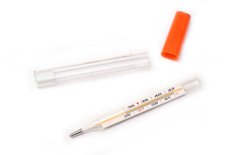LOW BODY TEMPERATURE
Low Body Temperature and Its Causes
Low body temperature results when the body is unable to keep the body "thermostat" regulated within a safe range.
Under normal circumstances, the body is able to generate and dissipate heat. The internal mechanisms can overcome most outside adversities of freezing cold or broiling heat.
When you are too cold, your blood vessels constrict/contract to reduce the flow of blood to your skin to conserve body heat.

Shivering is an involuntary rapid contraction of muscles which helps generate heat.
Normally, this protective mechanism keeps your body temperature in the safe range in emergency situations for maintaining life.
Body Temperature
You may measure your body temperature through the mouth, ear, armpit, rectum, and forehead.
The back of your hand on your forehead works well for a quick temperature gauge.
The body temperature is usually lower in the morning before you get out of bed.
According to Dr. David Brownstein, M.D., author of Overcoming Thyroid Disorders, your body temperature should be around 97.8 - 98.2.
Your temperature fluctuates throughout the day and will be lower
when you are at rest or when you are exposed to prolonged cold
conditions.
Conditions Contributing to Low Body Temperature
Low body temperature causes may be:
- Hypothyroidism caused by iodine deficiency
- Diabetes
- Liver or kidney failure
- Infection such as candida albecans, parasites and worms
- Endocrine dysfunction/hormone imbalance
- Side effects of medications such as sedatives, tranquilizers, heart medication
- Alcohol/drug abuse
- Hypoglycemia
- Excessive calorie reduction
- You live with excessive fear/stress/tension
- Low protein diet
- Carbon monoxide poisoning
- Verbal/mental abuse/unhealthy environment
- Chemical toxins such as halogens
- Artificial sweeters, chemical additives in food
- Sleep disorders, lack of sleep, disruption of circadian rhythms
- Anemia or porphyria, a rare blood disorder
- Chronic fatigue syndrome
- Brain injury
- Hypothermia
- Mercury and heavy metal poisoning
Why is Regulating Low Body Temperature Important?

The simple answer is that the body is designed to work at a certain temperature set point.
When the body temperature is low, the body can not maintain its homeostatis/balance in the way it was designed. Enzymes, vitamins, minerals and essential body chemicals become "depressed".
The normal functions of maintenance, repair and cleansing are slowed and problems develop.
Dr. David Brownstein, M.D. points out that body temperature is a crucial function of the thyroid, besides regulating the metabolism of every cell in the body.
One of the by-products of this metabolic mechanism is heat.
When the function of the thyroid is compromised by inadequate production of thyroid hormones, the metabolic balance moves at a slower pace and is unable to maintain its primary function - production of heat.
 |
Solutions - Suggestions
Supplemental iodine with Lugols Iodine has been a tremendous benefit in regulating low body temperature.
Or, you may try the iodine patch test method to rebuild the iodine in your system transdermally.
One of my favorite places to find information is Earth Clinic. These are treatments that people have tried with success such as adding coconut oil to the diet and using it topically.
You may have heavy metal or mercury poisoning which causes stress on the liver. A mercury detox can help you cleanse your body. You may also ingest distilled hot water with lemon juice to help cleanse your liver.
Meditation/inner visualization or biofeedback may break the cold cycle. If this is practiced over time, it may lead to long term improvement.
Try exerise to generate heat. Any type of movement works.
Protect your neck and wrists from air blasts which cause heat loss. Make certain your clothing isn't too tight. It will restrict the flow of blood to your hands.
You may have low copper levels in your body which is a contributor to low body temperature.
|
A simple hot bath in the morning reprograms the body to reset the thermostat. If you are not able to do this, immerse your hands and forearms in a sink of hot water for a minute. A warm shower at night before bed reminds the body to reset itself for the resting cycle. |
 |
Additional Suggestions |
Suggested food stuffs which may help raise your body temperature are rutabagas, carrots, and string beans.
Try spices such as ginger root, fennel, cayenne, and red hot peppers. Apple cider vinegar may help turn up your thermostat.
Avoid hydrogenated vegetable oil such as margarine which clogs your arteries resulting in poor blood flow and loss of heat to the extremities.
Consider visiting a chiropractor or doctor of osteopathy (DO).
If your back is out of alignment, even if you feel no pain, an
incorrect alignment of the spine can hinder the neural nourishment of
each organ and the flow of energy to produce warmth.
Nutrients - Minerals
Suggested nutritional supplements are: molybdenum, choline, alpha lipoic acid, coenzyme Q10, potassium, niacin, iron, vitamin B, vitamin C, vitamin E, and lecithin.
Dr. Cathcart of California suggests that the addition of molybdenum as mentioned at the Linus Pauling Institute, an essential trace element, is particularly useful for a constant nagging cold.
Legumes, such as beans, lentils, and peas, are the richest sources of molybdenum. Grain products and nuts are considered good sources as well.
Conclusion
Follow the iodine therapy, add essential nutrients and follow the suggested protocols. No one wants to freeze.
If you feel you may have an iodine deficiency, learn everything you can. Become informed.
You can become whole again.
Leave Low Body Temperature and Return to Iodine Deficiency
Leave Low Body Temperature and Return to Iodine Resource Home Page


